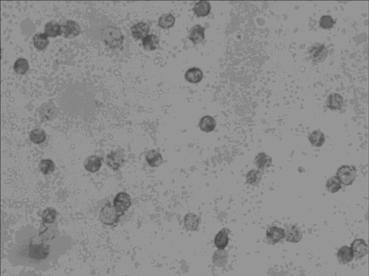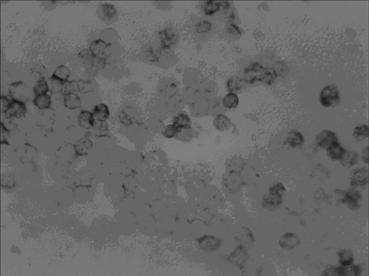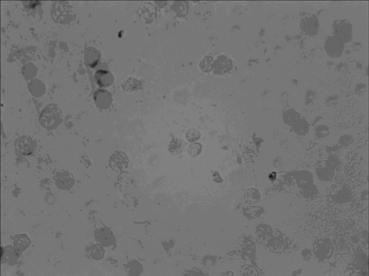In-situ hybridization detection kit for MICRORNA (MICRO Ribonucleic Acid)-233 level at pathologic evolution early stage of colon cancer as well as microRNA-233 in-situ hybridization detection method and application of microRNA-233 to preparation of in-situ hybridization detection kit for colon cancer
A detection kit and in situ hybridization technology are applied in the related detection technology field of RNA expression changes in the pathological evolution of lung cancer, which can solve the problems of non-decreasing mortality rate, drug resistance of tumor cells, failure of anti-cancer battle, etc. High sensitivity and specificity
- Summary
- Abstract
- Description
- Claims
- Application Information
AI Technical Summary
Problems solved by technology
Method used
Image
Examples
Embodiment 1
[0052] The in situ hybridization kit of this example was prepared according to conventional methods, and the kit included a hybridization probe designed with MICRORNA-233, a label, and instructions, wherein: the probe label of this example was digoxin.
[0053] Kit hybridization solution composition:
[0054] digestive juice 100μL / tube 1 tube / box colorless transparent liquid protective fluid 100μL / tube 1 tube / box colorless transparent liquid Pre-hybridization solution 1300μL / tube 2 tubes / box colorless transparent liquid Right-sense hybridization solution 10μL / tube 1 tube / box colorless transparent liquid antisense hybridization solution 10μL / tube 1 tube / box colorless transparent liquid blocking solution 1000μL / tube 1 tube / box colorless transparent liquid Alkaline phosphatase antibody 1 μL / tube 1 tube / box colorless transparent liquid Chromogen A 175μL / tube 1 tube / box yellow liquid Chr...
Embodiment 2
[0062] The implementation process of applying nucleic acid in situ hybridization detection method to the expression level of MICRORNA-233 in blood samples of each group:
[0063] 1).Take two specimens to be tested;
[0064] 2). Add 50 ml of digestive solution (100 μL of digestive solution plus 99.9 ml of 1× buffer Ⅰ, which is the concentration used) in a glass tank, preheat in a water bath at 37°C for 10 minutes, put 16 slides in, and treat at 37°C for 12 minutes , and then washed with 1× buffer I for 5 min;
[0065] 3). Wash with 0.2% protection solution (protection solution 1ml plus 1× buffer Ⅰ, 99ml is the used concentration) for 10 minutes, three-distilled water for 5 minutes (the above process is carried out in a glass tank), take out the slide and let it naturally dry;
[0066] 4). Put the slides into a humidifying box, add 25 μL / slice of pre-hybridization solution (add to the place where there are cells), cover with a cover glass, cover the humidifying box tightly, an...
PUM
 Login to View More
Login to View More Abstract
Description
Claims
Application Information
 Login to View More
Login to View More - R&D
- Intellectual Property
- Life Sciences
- Materials
- Tech Scout
- Unparalleled Data Quality
- Higher Quality Content
- 60% Fewer Hallucinations
Browse by: Latest US Patents, China's latest patents, Technical Efficacy Thesaurus, Application Domain, Technology Topic, Popular Technical Reports.
© 2025 PatSnap. All rights reserved.Legal|Privacy policy|Modern Slavery Act Transparency Statement|Sitemap|About US| Contact US: help@patsnap.com



